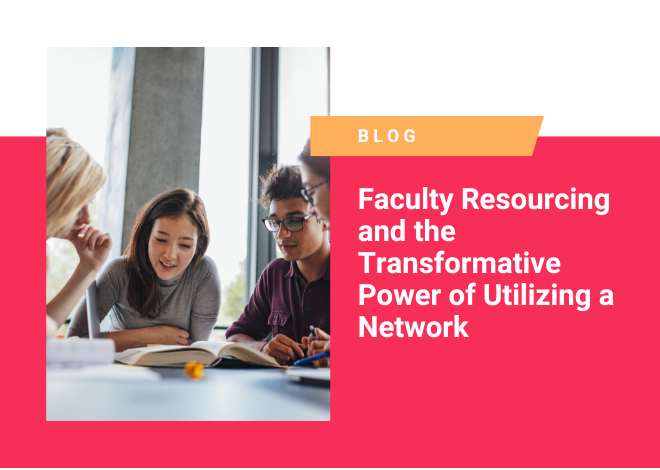Published by Acadeum
By Dr. Anthony Santamaria, Associate Vice President and Dean of Academic Operations at Saint Elizabeth University
Enhancing Social Mobility
Saint Elizabeth University (SEU) has a long-standing mission to provide opportunities and access to student populations that are often overlooked. Founded in 1899 by the Sisters of Charity of Saint Elizabeth, SEU has been committed to enhancing social mobility for over a century. This mission is not just an historical footnote but a living, breathing part of the institution’s daily operations. SEU is frequently recognized for its impact on the social mobility of its students, especially those from underrepresented and underserved backgrounds.
In recent years, SEU has amplified its efforts to support these students through a variety of innovative programs. These initiatives are designed to not only provide academic support but also to build a strong sense of community and belonging. The institution takes a holistic approach and recognizes that social mobility is about more than just academic success; it’s about empowering students to navigate and thrive in a complex world.
The Impact of Federal Grants on Student Success
Federal grants have been a cornerstone of SEU’s strategy to support underrepresented students, particularly in STEM and Health Sciences. One of the most significant milestones in recent years has been the acquisition of two Developing Hispanic-Serving Institutions (DHSI) Title V grants. These grants, totaling nearly $6 million, are specifically aimed at strengthening the institution and providing more support to low-income students from underrepresented populations, especially those of Hispanic descent.
The first DHSI Title V grant, worth $2.3 million, was a multi-faceted initiative that catered to high-achieving students, special admits, and everyone in between. The second grant of almost $3 million focuses on enhancing STEM and Health Sciences. Inspired by a successful STEM Scholars program funded by the National Science Foundation, the second grant aims to replicate and expand upon the achievements of its predecessor. The STEM Scholars program, a collaborative effort across four institutions, boasted a graduation rate of over 90% for low-income students from underrepresented backgrounds.
These federal grants have enabled SEU to offer a range of support services, including access to cutting-edge technologies, co-curricular opportunities, field trips, speakers, and mentorship programs. The impact has been profound, with significant improvements in student retention, persistence, and graduation rates, even during challenging times like the COVID-19 pandemic.
Maximizing Opportunities with State Initiatives
In addition to federal grants, SEU has also leveraged state initiatives to maximize opportunities for its students. New Jersey’s Tuition Assistance Grant (TAG) program is a prime example. TAG offers generous financial support–up to $13,000 per semester– for eligible students during the fall and spring terms. Recently, the program was expanded to include summer sessions, providing continuous support throughout the year.
This expansion is particularly beneficial for students who need to catch up on credits or accelerate their studies. It also helps those who have had to “stop out” due to financial or personal circumstances. By including summer funding, TAG ensures that students don’t lose momentum and can stay on track for degree completion. SEU has been proactive in leveraging this opportunity and incorporating it into its broader strategy to support students’ academic and financial needs.
Leveraging Consortium Partnerships for Expanded Learning
SEU’s commitment to providing a rich educational experience is further exemplified by its participation in various consortium partnerships. These partnerships allow the university to offer a broader range of courses and learning opportunities, particularly in the summer when traditional course offerings may be limited. SEU utilizes Acadeum, a provider in collaborative course sharing to bolster collaborative partnerships across its academic network. This collaboration enables SEU to offer more classes and specialized programs, ensuring that students have access to the courses they need when they need them. Whether it’s for degree recovery or accelerating progress, these opportunities are invaluable for students’ progression.
SEU utilizes consortial partnerships, such as the Council for Independent Colleges (CIC) and Yes We Must Coalition, strategically in grant-funded projects, providing additional resources and opportunities for students. The flexibility and expanded offerings from these consortia have been instrumental in supporting SEU’s mission to enhance social mobility.
Building a Sense of Belonging Through Specialized Programs
One of the most critical components of SEU’s strategy is building a strong sense of belonging among its students. Research has shown that a sense of belonging is particularly important for students in STEM and Health Sciences. SEU has taken this insight to heart, designing programs that foster community and connection.
The STEM and Health Science Scholars Institute is one such program. Held every spring, this institute includes trips to places like the Museum of Natural History in New York City, where students gain behind-the-scenes access to research labs. These experiences are not just educational but also inspirational, showing students that they belong in these advanced fields.
SEU also organizes various events and activities that include t students and their families. Recognizing that family support is crucial, especially for first-generation college students, SEU has made it a priority to involve families in the academic journey. This holistic approach helps build a stronger sense of community and ensures that students feel supported both on and off campus.
The Role of Family and Community in Student Achievement
Family involvement is a cornerstone of SEU’s strategy to support underrepresented students. Many of these students are first-generation college attendees, and their families may not fully understand the college experience. By including families in events and activities, SEU helps demystify the college experience and provides a support network for students.
SEU has found that family support is a critical factor in student success. Programs that include family participation have shown higher retention and graduation rates. These initiatives are designed to be inclusive and accessible, ensuring that all students and their families can benefit.The sense of belonging that comes from a supportive community is invaluable. It helps students overcome challenges, build resilience, and achieve their academic and personal goals. SEU’s commitment to involving families and building a strong community underscores its holistic approach to education.
In conclusion, SEU’s multi-faceted strategy to support underrepresented students in STEM and Health Sciences is a model of how federal and state grants, consortium partnerships, and community-building initiatives can work together to enhance social mobility. By focusing on both academic and personal support, SEU is empowering its students to succeed and thrive. In addition, the impact of these programs and initiatives on retention recovers enough revenue to make these programs sustainable for the university. These efforts have been transformative for the university and, most importantly, for the students served.



